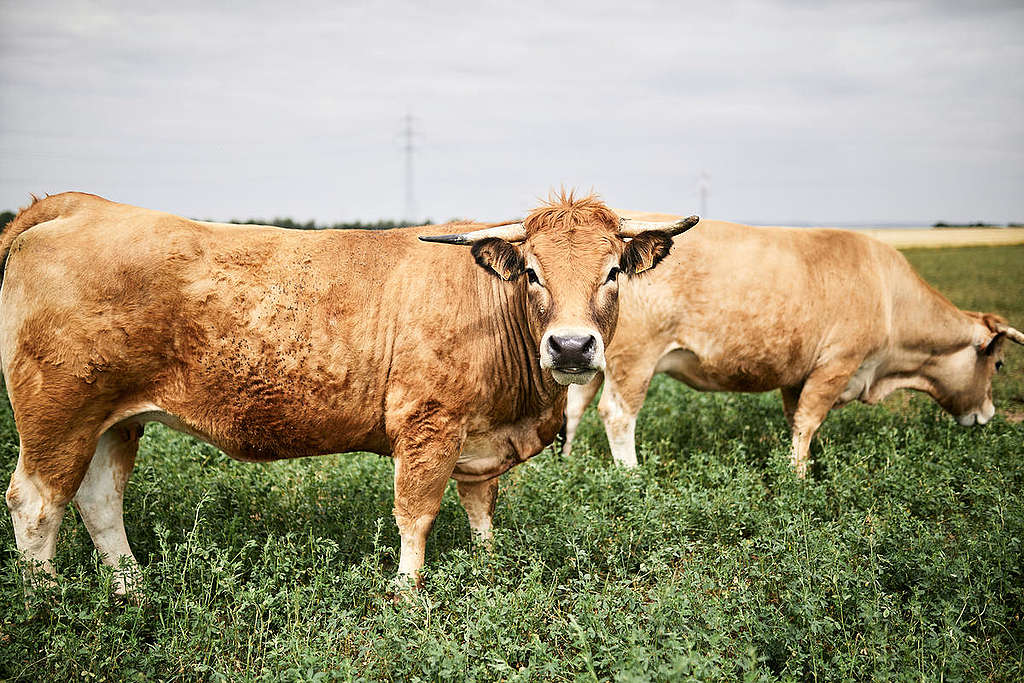Brussels – The nominee to be the next European agriculture commissioner, Janusz Wojciechowski of Poland, must steer EU farm policy away from industrial production of meat and dairy to keep his promises to protect small farmers and the environment, Greenpeace has said.

Answering questions from members of the European Parliament’s agriculture committee, commissioner-designate Wojciechowski said he would do whatever was possible to ensure that the EU’s common agricultural policy (CAP) becomes more environmentally and climate-friendly, and that he is in favour of cutting support for intensive farming.
On 23 October, the European Parliament’s plenary session is expected to vote on whether to accept or reject the entire European Commission team.
Greenpeace EU agriculture policy director Marco Contiero said: “Small-scale farms across Europe are being eaten up by factory farms, just as the Amazon is being devoured to grow more feed for overcrowded European animals. If Mr Wojciechowski wants to protect family farms and nature, and reducing farming’s contribution to climate breakdown, he must steer EU farming policy towards producing less and better meat and dairy. The EU Parliament’s environment committee has already made some serious proposals for how the CAP can protect nature, and support small farmers – we hope Commissioner Wojciechowski will throw his weight behind these.”
The Parliament’s environment committee voted on the reform of the CAP in February, approving cuts to subsidies for factory farms, and backing the introduction of higher environmental and animal welfare criteria, as well as increased funding for environmentally friendly farming.
In recent years, big farms have been getting bigger, and smaller family farms have been disappearing. Livestock production has increased, while the total number of livestock farms fell by 2.9 million, nearly a third, between 2005 and 2013. A staggering 72% of all European livestock products now come from Europe’s largest and most environmentally destructive category of farms.
Animal farming alone accounts for 12-17% of the EU’s total greenhouse gas emissions. Farm animals emit greenhouse gases themselves and are often fed commodities like soy, which are linked to deforestation and habitat destruction, and have a major climate footprint.
Greenpeace is calling for a 50% reduction in global meat and dairy production by 2050, to protect the climate, environment and public health. This call is echoed by the scientific community, including in a recent report from the EAT-Lancet Commission on healthy diets from a sustainable food system the RISE foundation report on the safe operating space for livestock.
Contacts:
Marco Contiero, Greenpeace EU agriculture policy director: +32 (0)477 77 70 34, [email protected]
Greenpeace EU press desk: +32 (0)2 274 19 11, [email protected]
This press release is available on: www.greenpeace.eu
For breaking news and comment on EU affairs: www.twitter.com/GreenpeaceEU
Greenpeace is an independent global campaigning organisation that acts to change attitudes and behaviour, to protect and conserve the environment and to promote peace. We do not accept donations from governments, the EU, businesses or political parties. We have over three million supporters, and offices in more than 55 countries.
